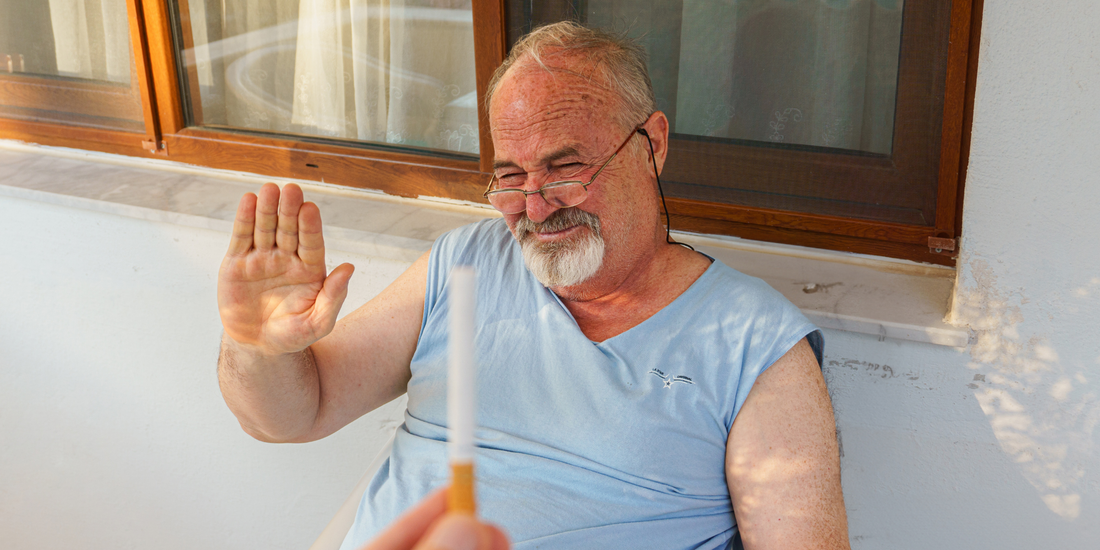
Breaking the Habit: Top Tips to help Quit Smoking
Share
Quitting smoking is never easy. It’s more than just stopping a habit, it’s about changing routines, fighting cravings, and learning new ways to cope. If you’re reading this, you may be considering quitting or have already attempted to do so. You’re not alone. Every year, thousands of Australians reach out to quit smoking clinics in Australia for help. These clinics have seen what works and what doesn’t. In this blog, we’ll share top tips, real stories, and practical advice, all backed by Quit Hero, to help you break free from smoking.
Why Quitting Is So Hard
Smoking isn’t just about nicotine. It’s about comfort, stress, and sometimes even boredom. Cigarettes can feel like old friends. However, breaking up with them is possible, and it begins with understanding why quitting is challenging.
-
Nicotine addiction: Your body craves it.
-
Routine: Smoking becomes part of your daily life, after meals, during breaks, or when stressed.
-
Emotions: Many smoke to cope with anxiety, sadness, or anger.
-
Social pressure: Friends or family who smoke can make quitting harder.
The Role of Quit Smoking Clinics in Australia
Quitting smoking clinics in Australia are designed to make breaking the habit of smoking easier. They offer support, advice, and sometimes even free nicotine replacement therapy. You can find clinics in hospitals, online, or through telehealth. Whether you live in the city or a remote area, there’s help available.
Why quit with help by healthcare?
-
Personalised quit plans
-
Free or low-cost nicotine patches, gum, sprays, or lozenges
-
Regular check-ins and follow-up calls
-
Tips for handling cravings and stress
-
Non-judgmental support
Top Tips from Quit Clinics Australia
1. Set a Quit Date
Pick a day to stop smoking. Mark it on your calendar. Tell your friends and family. This gives you something to aim for and helps you prepare for the future.
2. Know Your Triggers
Everyone has triggers. Maybe it’s your morning coffee, driving, or feeling stressed. Write down when and where you usually smoke. Once you identify your triggers, you can plan how to avoid or manage them differently.
3. Use Nicotine Replacement Therapy (NRT)
Healthcare professionals can help recommend NRT most suitable for you. It comes in many forms, patches, gum, lozenges, sprays. These help reduce cravings and make quitting less painful. Some clinics offer these for free, so ask what’s available.
4. Change Your Routine
Smoking is tied to habits. If you always smoke during certain activities, change things up.
-
Take a different route to work.
-
Swap your coffee for tea.
-
Chew gum or snack on fruit instead of reaching for a cigarette.
5. Stay Busy
Idle hands can lead to cravings. Keep yourself busy with hobbies, exercise, or even simple chores. The more distracted you are, the less you’ll think about smoking.
6. Ask for Support
Friends and family can cheer you on. If you require further assistance, please get in touch with your doctor or call the Quitline for advice and support. Many clinics offer online chats, text support, or video calls, making it easy to get help anywhere.
7. Practice Saying No
Sometimes, people will offer you a cigarette without thinking. Practice a polite but firm way to say no. “No thanks, I’m quitting,” is enough.
8. Reward Yourself
Every smoke-free day is a win. Celebrate your progress. Treat yourself to something small, a movie, a special meal, or even just time to relax. These rewards help keep you motivated.
Handling Cravings and Withdrawal
Cravings are normal. They usually last a few minutes but can feel intense. Here’s what Quit Clinics Australia suggest:
-
Delay: Wait five minutes before giving in. The urge will often pass.
-
Deep breathing: Take slow, deep breaths to calm your mind.
-
Drink water: Sip slowly to distract yourself.
-
Do something else: Go for a walk, call a friend, or play a game on your phone.
Withdrawal symptoms, such as irritability, trouble sleeping, or feeling down, are also common. They get better with time. If they’re too much, talk to a quit clinic or your doctor. Sometimes, adjusting your quit plan or using a different NRT can help.
Online Quit Smoking Clinics in Australia: Help at Your Fingertips
Not everyone can visit a clinic in person. Online clinics in Australia make it easy to access help from the comfort of your own home. You can chat with a nurse, get a quit plan, and even have medications delivered to your door. This is great for people in remote areas or those with busy schedules.
Benefits of Online Quit Clinics Australia:
-
No need to travel
-
Flexible appointment times
-
Private and confidential
-
Access to digital tools like reminders and progress trackers
What If You Slip Up?
Slipping up is common. It doesn’t mean you’ve failed. Most people try several times before they quit for good. If you smoke a cigarette, don’t give up. Think about what led to it and how you can handle it differently next time. Reach out to your support team for advice, and keep moving forward.
Extra Resources
There are many ways to get help:
-
Quitline: Phone, chat, or text support for quitting smoking and vaping.
-
Local clinics in Australia: In-person or online support.
-
Apps and websites: Track your progress and find tips.
-
Support groups: Connect with others who are quitting.
Final Thoughts: You Can Do This
Quitting smoking is a journey. It takes time, patience, and support. Quit smoking clinics in Australia have helped many people find their way to a smoke-free life. With the right plan, support, and a bit of self-kindness, you can break the habit too.
Remember, every day without a cigarette is a step toward better health. You’re not alone, and help is always within reach. Take it one day at a time, and celebrate every victory, no matter how small.
